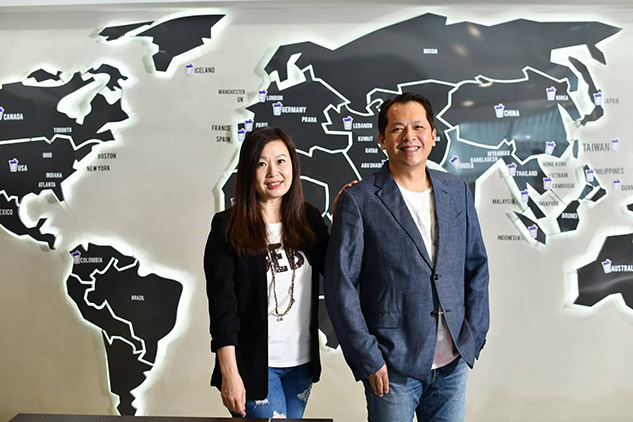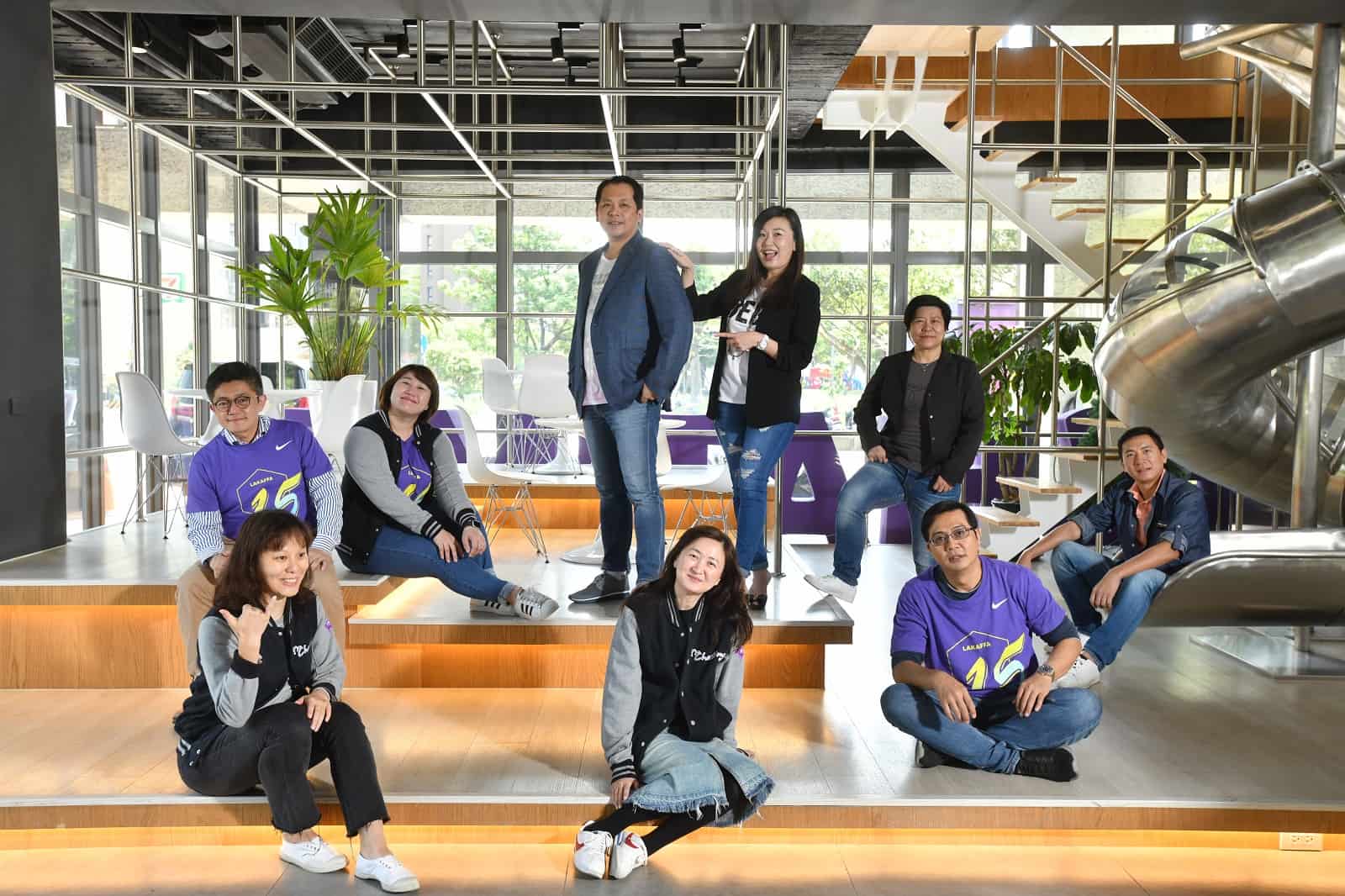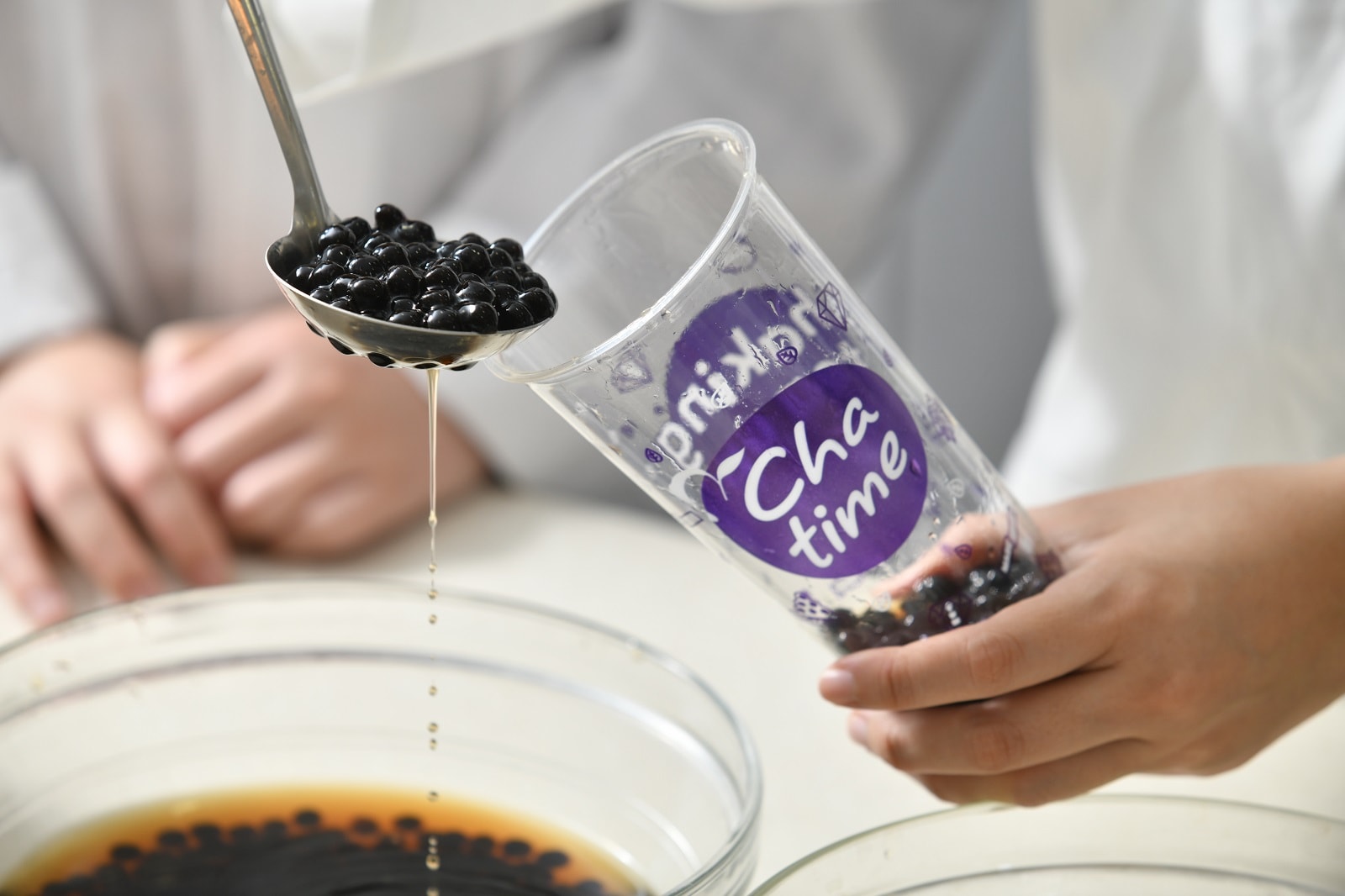How Taiwanese bubble tea brand continues global expansion during the pandemic

Source:Kuo-Tai Liu
As the pandemic spreads, La Kaffa International, which made Taiwanese bubble tea famous worldwide with the Chatime brand, has had the wherewithal to keep expanding franchises and take care of their suppliers. How did they pull it off?
Views
How Taiwanese bubble tea brand continues global expansion during the pandemic
By Yi-chih WangFrom CommonWealth Magazine (vol. 696 )
Editor’s note: Read our latest stories on the COVID-19 global pandemic
“With the fast spread of the novel coronavirus and the impossibility of abatement over the short term, we must be prepared for a prolonged battle,” stated Henry Wang, chairman of La Kaffa International, in a mid-March letter to 1,500 staff members in Taiwan and abroad.
COVID-19 has spread rapidly outside of China over the past month. Chatime, a tea beverage chain brand with franchise outlets in 42 countries, took a direct hit from the impact of the pandemic. Meanwhile, the impact reverberated from abroad to the company headquarters in Taiwan, as eight of its food and beverage brands saw precipitous sales drops as the pandemic grew in severity.
At 11 p.m., Wang hops on a video call with Lin Tingyang, CEO of Hangzhou’s Re Light Management Group, an institutional investor. Although work has gradually resumed, one of the three warehousing facilities is shut down, while another is unable to ship orders due to a city-wide lockdown, making business impossible to conduct.
Following the Chinese New Year festival, the city of Hangzhou declared a lockdown, placing crushing pressure on Henry Wang. Out of 1,600 drink shops all over China operated by the Re Light Management Group, 900 are located in Hangzhou, causing incalculable losses from shop closures. And even those shops that remained open saw revenues drop to just 20 to 30 percent of previous levels.
On the third day of Hangzhou’s lockdown, La Kaffa executive vice president Teresa Wang anxiously enlisted the company’s chief financial officer to take inventory of Taiwan and China’s cash reserves, ascertaining that if La Kaffa International did not lay off staff, cut salaries or close shops, and even if it had zero income, it had enough cash to stay afloat in Taiwan for two years, while it could hold out for five years in China.
Down to NT$11 in the Bank, Learned to Save in Good Times
The ample cash in reserve came from Henry and Teresa Wang’s strict practice of “building tall fortifications and stocking up on provisions” to prepare for the future.
Tea shops and restaurants rely on cash flow to support operations. However, Teresa Wang holds that cash volume outweighs cash flow in importance, since running a business is never smooth sailing, and cash reserves can be critical in a pinch.
In 2008, La Kaffa made its first foray outside of Taiwan after its founding in 2004, opening 30 directly operated shops in Shanghai at once, only to close all of them down after a year and losses of over NT$100 million. “I was down to just NT$11 in my bank account, with staff wages and supplier payments to make, and I came within a hair’s breadth of going to a loan shark.”
Nowadays, La Kaffa is on a completely different level than before. Free from having to chase after cash to survive like he did in the past, Henry Wang decided to look at the big picture. Having taken stock, no matter how long this pandemic lasts, La Kaffa feels the urgent need to stage a quicker recovery than others.
Long before the virus came along, Henry Wang had already been working on the second wave in the bubble tea revolution.
Stabilizing Manpower, Focused on the Big Picture
During the first pearl milk tea revolution of 2000, overseas chain stores received no additional support from the brand after purchasing raw materials, equipment and a set of standard operating procedures. However, in the future, brands will join with upstream and downstream businesses to form “national teams” to stake out overseas territory. And the pandemic will surely expedite the reshuffling of the market.
 Photo by Kuo-Tai Liu
Photo by Kuo-Tai Liu
Henry Wang looks at it like a baseball game. For him, the first half of the game is over. And La Kaffa, equipped to wait, must prepare for the last half of the game before its competitors.
Top Priority: Safeguarding Morale on the Front Lines
In addition to no layoffs or pay cuts for staff, Henry Wang is foregoing his salary this year, while some top executives have voluntarily taken between one- and three-month furloughs - all to shore up frontline staff.
“Frontline staff are La Kaffa’s most vital resource for staging a recovery faster than the others,” stresses Teresa Wang.
Halving Royalties, Saving Brand Licensees
To recover faster than others, brand licensees are receiving enough support to boost their strength.
Quite a few Taiwanese tea shop franchise headquarters are already too busy dealing with their own issues to concern themselves with the fates of their franchisees. But before the pandemic even surfaced in Southeast Asia, La Kaffa was already communicating Taiwan’s leading containment experience. In late March, Teresa Wang notified brand licensees, and in April began cutting royalties in half, taking a huge bite out of the home company’s revenues.
She also relaxed adherence to the international business convention of payment before shipping, so that orders go out as soon as licensees make them, and payment is delayed until sales are made. This helps stabilize licensees’ cash flow.
It is well known in the business world that pearl milk tea beverage brand licensees with 20 or 30 outlets are susceptible to getting blown over by the winds of fortune in the environment at large, yet at the same time they can make a valuable contribution to brand revenue. La Kaffa’s franchisees in Japan, France, the UK, and the USA are all similar, yet these countries also happen to be among the hardest hit by the novel coronavirus.
Accordingly, at the outset La Kaffa offered discounts to Japanese licensees, even providing free materials to support cash flow. This way, even if the number of outlets open in the second half of the year falls short of expectations, at least no shops will be forced to close.
Advance Payments, Looking After Suppliers
Moreover, La Kaffa is even looking after raw material suppliers, whom the handmade beverage brands view as their “armory.” La Kaffa expended great efforts on counseling suppliers to get set up in overseas markets to conform with various countries’ food safety laws and regulations, even helping them apply for factory registrations and company business licenses.
“It’s better to rescue an old one than to try and find a new one,” Henry Wang says candidly. Surely in the future, when there is a crunch of orders for raw materials, suppliers will hook up La Kaffa first.
Henry Wang asked someone from the purchasing department to call a raw materials supplier and ask if they needed to pay in advance for orders. La Kaffa pays instantly for a 20- to 30-percent discount, saving quite a few of Re Light’s PRC suppliers.
 Photo by Kuo-Tai Liu
Photo by Kuo-Tai Liu
The sudden pandemic outbreak saw La Kaffa’s revenues drop by 20 percent in the first quarter of this year over the same period last year. Yet outlet expansion continued apace with the addition of 69 new shops around the world between January and March, in preparation for the “second half of the game.”
La Kaffa’s established branding and technology investments have boosted its punch.
Starting late last year, La Kaffa began working on a secret “Three Less Plan,” including people-less smart shops, cashless mobile payment, and contactless delivery systems. And despite the pandemic, Teresa Wang kept upping the ante, saying “now is the best time to negotiate terms.”
Henry and Teresa Wang, known for being frequent flyers, along with having a strong knack for expanding operations into new overseas territories, were suddenly grounded after the Chinese New Year due to the pandemic. This got them to refocus their sights on the Taiwanese market, where they opened 15 new shops in less than three months.
Teresa Wang notes that La Kaffa had opened a total of 20 shops in Taiwan in the last 15 years, but that this year it will add 20 new shops in Taiwan.
La Kaffa’s plans to bring Duan Chun Zhen Beef Noodles to Hong Kong and California in March were forced to the back burner due to the pandemic. After returning to Taiwan, they joined forces with nine brands under their banner to distribute Economic Revival Savings Vouchers worth NT$450 million at a 50 percent discount.
In addition to taking advantage of discounts to increase cash flow, Henry Wang would like to enhance consumers’ preference for his brands, exclaiming “This is the starting line for a future all-out battle.”
Teresa Wang pessimistically forecasts that the pandemic will continue to cast its shadow through the rest of the year. Wang says that even if La Kaffa is unable to reach its revenue growth goal of 20 percent this year, at the very least it should be able to maintain last year’s level.
Heads of corporations are united in their fear of the pandemic. Henry Wang believes that the best approach is to compel himself to bravely face the facts, and take an optimistic attitude while running simulations of the most pessimistic situations.
Have you read?
♦ COVID-19: Live updates
♦ How Chatime Is Brewing Up a Global Presence: Taiwan Bubble Tea at the Louvre
♦ How Taiwanese Bubble Tea Conquered the Taste Buds of The Japanese
♦ COVID-19: How Taiwanese Companies Are Rethinking 2020
Translated by David Toman
Edited by TC Lin
Uploaded by Judy Lu








